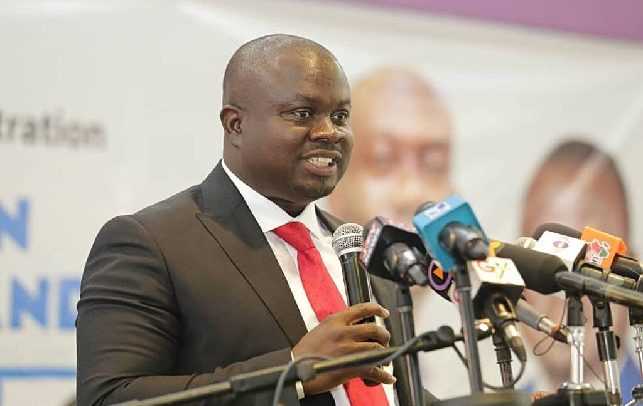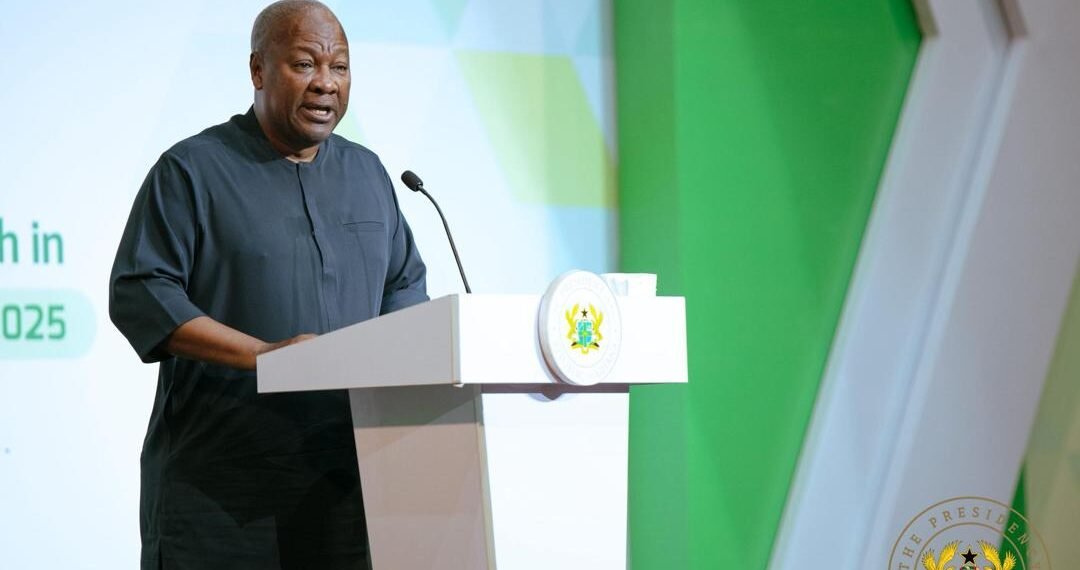The Ghana Journalists Association (GJA) has lauded President John Dramani Mahama for his decisive intervention that successfully halted the intended revocation of frequency authorisations for 64 radio stations across the country.
In a significant news release issued from its headquarters at the Ghana International Press Centre, the GJA expressed profound appreciation for the President’s directive, which effectively diffused mounting tension within the electronic media industry and averted what could have been a catastrophic disruption to Ghana’s vibrant media landscape.
“The GJA believes shutting down 64 radio stations regardless of their infractions would have ruptured the electronic media industry, with dire social and economic consequences, including loss of thousands of jobs and denial of critical public services rendered by the stations”.
Ghana Journalists Association
Furthermore, GJA noted that the initial decision without the presidential clemency would have denied numerous communities access to critical public services rendered by these stations, many of which serve as vital conduits for information, education, and entertainment, especially in remote areas.
Beyond the immediate economic and social fallout, the GJA highlighted a deeper concern: that a mass shutdown could seriously undermine media freedom and freedom of expression, fundamental tenets of Ghana’s democratic framework. This concern aligns directly with the President’s own view, as acknowledged by the GJA.
The National Communications Authority (NCA) had initiated steps to shut down sixty-four defaulting stations, citing various regulatory breaches as the basis for their action.
According to the NCA, the infractions committed by these 64 radio stations included critical regulatory lapses such as failure to renew authorisation, operating without valid authorisation, exceeding permitted transmission power, and non-payment of authorisation fees.

These violations, from a regulatory standpoint, presented a clear case for punitive action aimed at ensuring compliance and order within the broadcasting sector.
However, as the NCA moved to implement these sanctions, President Mahama swiftly intervened, directing the Minister of Communications, Digital Technology and Innovation to liaise with the NCA and suspend the planned shutdown.
Timely Presidential Action
This timely presidential action has been met with widespread relief, particularly from the GJA, which had voiced grave concerns about the potential repercussions of such a sweeping closure.
In light of these potentially devastating impacts, the GJA commended President Mahama for choosing to temper regulatory enforcement with clemency in this particular instance.

The Association considered his intervention as sending a good signal that the government is responsive to concerns for media freedom and is committed to fostering media pluralism and diversity.
This act of executive discretion, according to the GJA, demonstrates a nuanced understanding of the media’s role in a democratic society, balancing the imperative of regulation with the broader principles of press freedom and public access to information.
Call to Action and Righteousness
While expressing its gratitude and commending the President’s foresight, the GJA also issued a crucial appeal to the affected radio stations.
The Association strongly encouraged these stations to utilize the moratorium extended to them to “fulfill all righteousness as far as regulatory compliance is concerned.”
This stern but supportive advice emphasizes the importance of promptly regularizing their operational status and settling any outstanding obligations to avoid any subsequent and perhaps irreversible closures.
The GJA underscored that it does not condone illegality of any kind, reinforcing its stance on responsible broadcasting. However, it equally shared the President’s view that regulatory compliance must accommodate the overriding need to uphold and enhance media freedom.
The GJA further reiterated its long-standing call for regulatory approaches that do not stifle the flow of information or unduly penalise media houses.
The Association has consistently advocated for a collaborative and communicative environment between the regulator and industry stakeholders.
More and Extensive Dialogue
To that end, the GJA called for “more and extensive dialogue” between the regulator and stakeholders in the industry so that in the pursuit of operational fidelity, “we do not cut our nose to spite our face.
To ensure fairness and transparency in the enforcement of regulatory compliance, the GJA also made a specific and significant demand to the National Communications Authority (NCA).

The Association called upon the NCA to publicly publish the standing of all radio and television stations across the country, including the dates of their regulatory compliance.
Crucially, they also requested the publication of the owners of those stations. This measure, if adopted, would enhance accountability within the broadcasting sector and provide greater clarity for all stakeholders, fostering a more equitable and transparent regulatory environment.
In conclusion, the Ghana Journalists Association viewed President Mahama’s intervention as a critical moment that safeguarded the electronic media industry from a significant crisis, preserving thousands of jobs and ensuring continued access to vital public services.
READ ALSO: UK Denies Role In Israeli Strike On Iran























